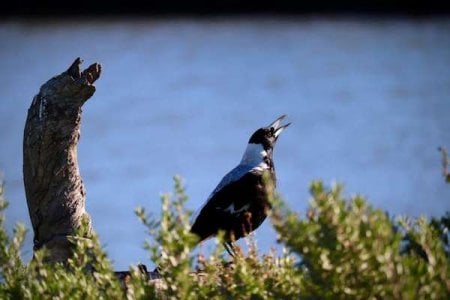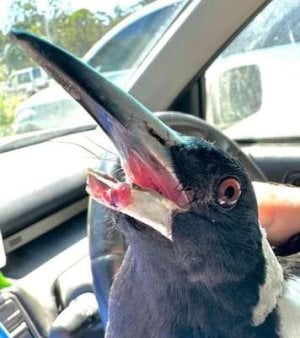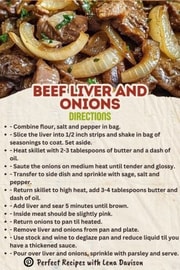Are you feeding these feathered backyard visitors? Here's why you should not do it
By
Danielle F.
- Replies 35
As Aussies enjoy the tranquillity of their backyards, encountering Australia's iconic animals may come as a surprise.
One of these visitors is magpies, pleasant visitors with whom people can be friendly by offering snacks.
However, recent photos prompted a stern warning about the seemingly innocent act, which could have dire consequences for these birds.
Several grim images showed multiple magpies with severely broken beaks.
These images have since circulated online, shocking and saddening Australians nationwide.
These injuries are not just results of unfortunate accidents; these are often linked to a common backyard activity: feeding magpies some mince or bread.

Keith Porteous, a Sunshine Coast local known as 'The Wildlife Rescuer', encountered three magpies with 'painful injuries' late last year.
The birds, which could not eat properly due to their broken beaks, were victims of metabolic bone disease (MBD) and oral infections.
These conditions all stem from a lack of proper nutrition.
MBD is a result of calcium deficiency in a bird's diet.
When magpies eat food like bread and mince, they neglect their natural diet that provides calcium and other vital nutrients they need.
This lack of nutrition could make their bones soft or brittle, making them prone to fractures and deformities.
The consequences of feeding magpies these human foods are severe.
Birds with irreversible beak damage from MBD often end up euthanised.
By refraining from feeding wildlife human food, Australians can ensure their health and longevity.
However, the issues about magpie feeding do not end there.
Feeding magpies could also lead to unnaturally large gatherings of the birds.
These gatherings create competition among birds and could spread disease among flocks.
In a separate development, wildlife researchers in Western Australia have been investigating a mysterious paralysing syndrome affecting magpies.
The neurological condition, first reported in Perth and the Southwest region, causes weakness, coordination issues, and inability to breathe.
With cases on the rise among magpies, researchers from Murdoch University and other organisations have been working diligently to determine the cause.
The team also recommended that the public avoid any physical contact with sick birds and immediately seek professional help.
If you have been feeding magpies or other wildlife in your backyard, experts urge everyone to stop the practice and enjoy their presence from a distance.
Feeding wildlife, although done with the best intentions, could have unintended and devastating effects.

Have you witnessed the effects of feeding wildlife in your area? Do you have any tips for enjoying the presence of birds without causing them harm? Share your stories and advice in the comments below.
One of these visitors is magpies, pleasant visitors with whom people can be friendly by offering snacks.
However, recent photos prompted a stern warning about the seemingly innocent act, which could have dire consequences for these birds.
Several grim images showed multiple magpies with severely broken beaks.
These images have since circulated online, shocking and saddening Australians nationwide.
These injuries are not just results of unfortunate accidents; these are often linked to a common backyard activity: feeding magpies some mince or bread.

Australians are familiar with a magpie's melodic warbling and chirping. Image Credit: Pexels/Carolyn Shearer
Keith Porteous, a Sunshine Coast local known as 'The Wildlife Rescuer', encountered three magpies with 'painful injuries' late last year.
The birds, which could not eat properly due to their broken beaks, were victims of metabolic bone disease (MBD) and oral infections.
These conditions all stem from a lack of proper nutrition.
MBD is a result of calcium deficiency in a bird's diet.
When magpies eat food like bread and mince, they neglect their natural diet that provides calcium and other vital nutrients they need.
This lack of nutrition could make their bones soft or brittle, making them prone to fractures and deformities.
The consequences of feeding magpies these human foods are severe.
Birds with irreversible beak damage from MBD often end up euthanised.
By refraining from feeding wildlife human food, Australians can ensure their health and longevity.
However, the issues about magpie feeding do not end there.
Feeding magpies could also lead to unnaturally large gatherings of the birds.
These gatherings create competition among birds and could spread disease among flocks.
In a separate development, wildlife researchers in Western Australia have been investigating a mysterious paralysing syndrome affecting magpies.
The neurological condition, first reported in Perth and the Southwest region, causes weakness, coordination issues, and inability to breathe.
With cases on the rise among magpies, researchers from Murdoch University and other organisations have been working diligently to determine the cause.
The team also recommended that the public avoid any physical contact with sick birds and immediately seek professional help.
If you have been feeding magpies or other wildlife in your backyard, experts urge everyone to stop the practice and enjoy their presence from a distance.
Feeding wildlife, although done with the best intentions, could have unintended and devastating effects.
Key Takeaways
- Backyard feeding of magpies with inappropriate food could lead to severe beak injuries and metabolic bone disease.
- Wildlife rescuer Keith Porteous found emaciated magpies with broken beaks, unable to feed properly, which prompted a warning to the public.
- Feeding magpies could also cause unnatural gatherings of the birds, leading to competition and the spread of disease.
- Researchers in Western Australia have been investigating a mysterious paralysing syndrome affecting magpies.








